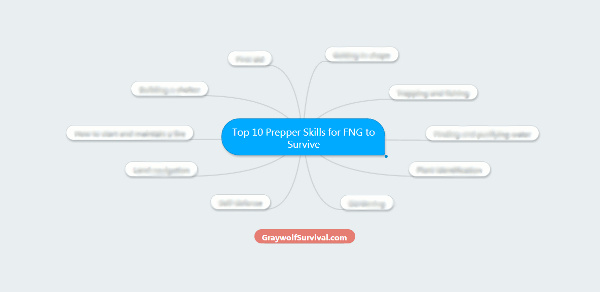 So I was perusing the survival and prepper websites the other day (as I do every day) and came across a couple articles on prepper skills. Then I saw on facebook that a couple people were asking pretty much the same thing: what are the most important prepper skills/abilities you should be working on?
So I was perusing the survival and prepper websites the other day (as I do every day) and came across a couple articles on prepper skills. Then I saw on facebook that a couple people were asking pretty much the same thing: what are the most important prepper skills/abilities you should be working on?
One key thing to know is that the more you know, the less you have to carry. Knowing something doesn’t weigh any more than not knowing something, but not knowing something can make you carry more than if you knew more.
Read my article on skills vs stuff if you haven’t already.
Well, at first it seemed like this would be a no-brainer. Then I started getting deeper into it. Here are a few examples that I got on my facebook page when I posed the question of what top 10 skills you should learn first (there was no example given so people just answered with whatever scenario they had in mind):
- The survivalist mindset (including creativity)
- Great Physical fitness
- Navigation
- Vast knowledge of the flora and fauna
- First Aid
- Fire making
- Shelter construction
- Finding or producing Water and Food
- Trapping
- Weapon mastery
- Physical fitness
- Fire starting
- Shelter construction
- Water purification
- Hunting/shooting
- Trapping
- Food production
- Woodworking
- Medical/First Aid
- Blacksmithing
- Fire
- shelter
- trapping
- cooking
- water management
- tracking
- gardening
- seed harvesting
- first aid
- shooting(bow and firearm)
- Security /armed skills
- Water purification
- hunting
- food prep/storage
- gardening
- Herbal medicine
- building shelter/etc
- heating/solar/Power
- gathering
- teaching
- water filtration/purification
- build/find shelter techniques
- fire starting and building
- basic first aid
- plant/insect identification
- foraging – plants, berries, insects, etc.
- physical fitness
- evasion/defensive tactics
- orienteering
- communications
- Water purification
- Fire staring
- Shelter building
- Wound care
- Food/nutrition acquiring
- Weapons
- Hygiene
- Preserving food for travel
- Items to trade
- Keeping your items DRY
- Finding and cleaning water
- Build fire
- Shelter
- Food
- Gardening. Husbandry (like raising chickens and rabbits). Hunting. Foraging
- First Aid/Medical
- Combat
- Negotiate
- Hope
- Not afraid to kill
- can improvise tools and weapons if necessary
- Setting Traps, Snares, Jingle Wire alarm systems
- Hunting/gathering
- Shelter Building
- Good hand to hand combat skills (Staff, Sword, Knife, Ax, as well as Pressure Points)
- Tracking skills
- Willingness to do whatever it takes to defend and care for the Group
- Fire starting many different ways fire building (Long lasting fire)
- Knowledge to find and treat water
- Tying multiple styles of knots both load bearing and not.
- starting fires by hand
- Learning smoke signals
- Making safe drinking water from scratch
- Learning Different styles of traps
- Learning the safe and poisonous plants and how to identify them
- field first aid
- How to make bone hooks and needles
- How to tan hides and make clothing
- Map reading and navigation
- Preparing for a long term situation
- Water collection and purification
- Planting a garden
- Raising livestock
- Foraging plants
- Trapping/hunting/fishing
- Weapon proficiency and maintenance
- Distillation of spirits
- First aid/herbal remedies
- Fire
- How to use non power tools
Now some of those aren’t really skills but traits but the lists helped me by doing that. I decided that there are things that aren’t quite skills but rather abilities that you need to work on as well, so I tweaked the focus of this article a bit.
There are many considerations that you have to think about when deciding which skills and abilities you should be focusing on learning if you’re trying to be prepared for being lost camping, home invasions, weather emergencies, SHTF, TEOTWAWKI, or whatever. Here’s what you need to consider when trying to figure out what skills and abilities you need to know or have to deal with SHTF or emergencies:
What are you preparing for?
The first consideration is really, what are you preparing for? I wrote a whole article on this concept previously. If your plan is focused primarily on responding to a local weather disaster like a hurricane or tornado, you’ll probably need skills that rely more heavily on medical care. If you live in an area prone to flooding, you’ll need to focus more on water filtration and waste disposal. If you’re greatly concerned about the total breakdown of society or a government takeover, you may want to focus more heavily on weapons-handling, self-defense, and tactics.
This is essentially the same thing as trying to get somewhere without knowing where it is you’re trying to go. You need to know what threats you’ll most likely be facing and what risks those threats pose that you’re wanting to mitigate (your destination – your Point B), then look at what you can do right now about them (your current location – or Point A), and map yourself out a course to get from Point A to Point B.
What do you have available to you?
As I wrote about in my 3 inventories post previously, in order to come up with a plan to survive, you need to know what you have available. What do you know how to do? What friends do you have available? What can your friends do? What equipment do you have available to you? You’re essentially taking inventory of what skills, abilities, and stuff you have or know how to get.
If you’ve spent some time gathering a few things for an EDC kit (every day carry kit) to have with you at all times and a well-planned bug out bag in case SHTF or whatever, then you’ll have a big advantage. For example, if you have a good water filter in it like the Sawyer MINI that I carry in both my go bag and my bug out bag (and my Harley), you don’t have to focus as much time on learning other water filtration methods. If you want a good book on what to pack in a bug out bag, read Build the Perfect Bug Out Bag: Your 72-Hour Disaster Survival Kit
.
Stop screaming back in the back corner. Remember; this is about prioritization. If you have an hour to learn either first aid or water purification and you have a sawyer mini, you should focus on first aid first and then back to water purification if you have time. I didn’t say that if you have a water filter that you don’t have to learn how to filter water without one. Geesh.
This isn’t just about inventory either. Along your route (in this case, from FNG’s gambling-living neighborhood to the cabin), there are things available such as locations to get water and places to avoid such as section-8 housing. The more you can use something along the way, the less you have to focus on it. The more something introduces a challenge to you along the way, the more you need to prioritize mitigating that challenge.
What strengths and weaknesses do you have?
If you’ve had 30 years of experience as an 18B Special Forces Weapons Sergeant then you probably don’t need to be focusing much time on developing on weapons and tactics. Obviously you need to maintain what you have but if you’re already a master at CQB and aren’t that great at trapping, then guess which you should be focusing on if your intent is to be as prepared as possible.
On the other hand, if you have a physical disability, you should probably be focusing your time on learning transferrable and non-physical skills such as communications or medical so you can be an effective member of a team, regardless of your circumstances, in addition to the obvious: how to deal with your disability during a crisis. It would be time better-spent for you than learning CQB.
Each of you have a wide variety of experiences and abilities that are completely different than others. You need to take an inventory of yourself and see what you can leverage and what you need to compensate for.
What skills and abilities do your family members or teammates have that you can rely on?
Special Forces operational detachment teams have (or are supposed to have) twelve members. It’s essentially 6 major focuses. Each focus has 2 people in that slot so there is immediate redundancy – a primary and a backup. BUT, each person on the team is cross-trained on some level with everyone else’s skills – and they all have basic skills that all SF and non-SF Soldiers get.
If your family or team is to deal with non-normal situations effectively, you need to do something similar. I’m not saying that you need to have an SF structure – you don’t. You do need to come up with a team dynamic though. What skills and abilities does your TEAM need to have to deal with whatever you’re preparing for? If you don’t have a team, then you need to envision a team for now and get started under that assumption. If you don’t think you need a team, read this.
Once you’ve figured out what skills you need as a team and what special considerations you need to figure out (such as physical disabilities, babies, etc), then figure out who would be best to learn each of those skills on your team. Make sure that you overlap your abilities though because if you only have one medical person and no one else learns first aid, you’re SOL if something happens do Doc.
If you have a doctor, nurse, EMT, 18D or whatever on your team, obviously they should be considered as a primary for medical skills. If you have a ham radio license and understand RF theory and practical application, obviously you should be considered as a primary for comms. If your skill is singing John Tesh, you’d better learn how to make whiskey.
Also think about what skills everyone on your team needs to have such as basic first aid, making a fire, etc and set up a training schedule. Planning to learn without a plan to learn isn’t really planning.
Well, in order to answer what top skills you should be learning, I have to make some assumptions. The further your situation deviates from these assumptions, the more your personal top-10 list will actually be. We’ll create a person here with whom we have certain assumptions…
Let’s look at an example
Let’s assume you don’t know anything about prepping. It’s your first day. You grew up in the big city and your only idea about living in the wild is knowing which walking path is shortest to take through the park to get to Starbucks. There are actually a LOT of people who fall into this category, and a lot of them read this blog.
Most people who read this blog are beginning preppers. Most aren’t as green as our fictitious example person, whom we’ll call by his initials, F.N.G., but they’re closer to that end of the scale. FNG should give you at least an idea of what to think about from his perspective so you can extrapolate that into your own.
So FNG has only what skills our lovely public education system has taught him. He’s mid-30’s, in good health, and in ok shape. FNG has no particular kills, nor any particular weaknesses except an unnatural affinity to sing John Tesh in the shower and/or after his 5th shot.
FNG now lives in a fairly large town on the coastline. He’s familiar with the area and has seen some pretty harsh storms come through. His biggest concern is that a tsunami, hurricane, or earthquake will hit and destroy his neighborhood, causing him to have to leave town and head into the woods. He’s also concerned that the decline in the bees in the country could cause severe food shortages and collapse the economy. Previous riots after basketball games and court case findings cause him to believe that if basic services like police and fire are swamped with other things, his town will not be safe to live in so he’ll have to head out. He wants to be able to live remotely for at least a year or two.
Because he all grew up in NYC and lives very close to work, he’s never had to buy a car. Besides, he believes that if things broke out, the roads would be impassable from his home to outside of town. He believes he’d have no choice but to bug out on foot.
Luckily for him, his old school pal has a cabin about 50 miles inland and is quite secluded. He’s been there before and can find it if he can get close to the area.
FNG has a few friends that he plays poker with every week who live in his neighborhood. They’re all identical clones with identical backgrounds.
Sound far-fetched? Well it has to be a little bit otherwise I’ll have to spend an extra 20,000 words on this article breaking it all down and you all have stuff to do. Besides, I like to drink beer when I write and I can only drink so much beer. Ok, maybe that’s not true but I do like to drink beer when I write.
So what top 10 skills and abilities should FNG be working on?
As we saw in the top 10 lists above, there are MANY different things he should be learning and things he should work on that aren’t quite skills but abilities. There are also many different priorities to those skills, based on different situations that someone might be in.
Here’s what I’d suggest to FNG if this all I knew about him was what we know above, not necessarily in any order:
- Finding and purifying water
- How to start and maintain a fire
- Getting in shape
- Self-defense
- Land navigation
- Building a shelter
- First aid
- Trapping and fishing
- Plant identification
- Gardening
There are books out there that can teach you a lot about how to deal with most of these things on this list but I haven’t found one better than the SAS Survival Handbook: The ultimate guide to surviving anywhere yet. If you don’t have a copy of this book – GET ONE.
There are also several videos out there on youtube. Once you know the basics and have seen a few examples, it’s not too hard to look at what you have available and put something together if you have the time and energy. The more you practice, the easier it gets.
Finding and purifying water
Water is the big thing to learn for pretty much anyone in a survival situation. You may go a few days without water before you die from dehydration but you’ll quickly become incapacitated and could more easily die from heat stroke or just stupid mistakes if you go too long without water. Plus, if you don’t know how to filter it properly, you could get all sorts of nasty stuff in you that could kill you.
You can’t purify water if you don’t have it to purify though. Also, you can only carry so much water with you. Because FNG has a fair idea of where he’s going, he should be able to design a bug out route that will allow him to find water along the way. This will almost definitely extend his 50-mile trek but it’s well worth it if it means he’ll have water along the way.
Because water is so important, you HAVE to have backup plans for it. FNG should familiarize himself with waterways in the area that aren’t along his route. He should also learn how to purify water without his water filter in case it gets lost, stolen, or broken.
Boiling water is one of the most effective ways but you need a fire to do it.
How to start and maintain a fire
There are all sorts of ways to start a fire without using a lighter, and not all of them will work in every circumstance. Because fire can help purify water, cook and dehydrate your food, keep you warm, keep away animals and bugs, and make you generally feel better in a survival situation, it’s a must-know skill and ability.
You’ll have to check to see if this is still available by the time you read this but check out the Everstrike Match. (It’s free right now).
In order to start a fire though, you need to have something that will light and stay lit. It’s not as easy as you might think for people who didn’t grow up learning how to do these things. I have a whole article on how to build a fire that will light that explains it.
FNG should also practice with the fire-starting gear that he carries with him. It may seem easy to start a fire with a ferro rod (and it is really) but you should know your equipment.
For example, a lot of people carry a small magnifying glass in their bug out bag or EDC kit so they can start a fire. Have they tried to start a fire with it? No, because it won’t work. A cheap fresnel lens is MUCH better than a small magnifying glass but even it needs to have dry tinder and a bright sun.
In addition to being able to start a fire with whatever he has on him, FNG should find at least one or two ways to start a fire with whatever he can easily find in the area he’ll be traveling. For example, here’s how to make and start a fire with a fire bow:
You need to be able to do that because like the water filtration, you need a backup. Starting a fire by rubbing sticks together is a lot harder than you might think though so having something to make fire in your kit is important.
 BTW, at the moment, Survival Life is giving away a free Everstryke match
BTW, at the moment, Survival Life is giving away a free Everstryke match for just shipping costs that would be very useful even if you didn’t have char cloth available or wanted to save it. Unfortunately they don’t have just a ‘buy now’ button so you have to sit through a stupid video before you can get it, but it’s worth letting it run for a few minutes so you can get one. They’re also sending out other goodies with it at the moment. Here’s what they say you get:
- Has it all: Contains the ferro rod and wick in one all-inclusive fire starting kit that fits conveniently in your pocket.
- Strikes hot, burns hot: Ferro rod strikes at over 3000 degrees and flame burns at over 600 degrees Fahrenheit
- Long lasting: Each match is capable of 15,000 long burning strikes. Built in O-Ring keeps fuel from evaporating indefinitely ( A Zippo can run dry in as little as a week!)
- Lights in ANY condition: Will start a fire in the rain sleet or snow
- Easy to use: If you can strike a match you can start a fire (and this one won’t burn your fingertips)
- Ultimate survival tool: In a survival situation a fire is life, this tool will make sure that you can start a fire whenever, wherever you need it.
- BONUS #1 Get a new book Ultimate Survival Skills FREE.
- BONUS #2 Get a FREE 2 Hour Survival Class.
Click here to sign up for the free everstryke match.
Getting in shape
FNG is going to be hiking a minimum of 50 miles in this case, through all sorts of terrain – all whilst carrying a bunch of gear. The more he gets in shape, the more he’ll be able to carry (see How much gear should you put in your bug out bag?). This isn’t something that you can wait until SHTF happens to start though, and it’s not something that you can just read about. It’s something that you have to actually do, and do often.
You need to put your pack on your back and walk in different terrains. You need to build up your lung and leg capacity by doing cardio. You need to actually do what you’re training to do as a part of your getting-in-shape.
Getting in shape will also help you defend yourself. If you’re big, strong, quick, and have stamina, you have a much better chance of winning a fight than someone who doesn’t. Besides, getting in good shape could come in handy if you come across a volleyball team that needs rescuing.
If you’re not in great shape already (just like FNG), you should either get a trainer to help you speed up the process or look into at least getting a good workout program that you can follow.
Self-defense
If FNG’s coastal town/city breaks down and he has to leave along with thousands of other people, he may well run across people who want to either take his stuff or hurt him just because they can. This happens in every major disaster to some degree. The more your disaster happens away from lower-populated small-town America, the more likely it is that you’ll have to defend yourself. As the situation gets worse and continues, so does your threat from others. Learning how to fight without a weapon is a priority.
Krav Maga is one of the best fighting forms out there for defending yourself in these kinds of situations. Obviously, the best way to learn it is to go to a studio and learn it from a master. There is nothing that will teach it to you better than that. If you absolutely can’t do that then at least pick up a good training DVD set like Mastering Krav Maga.
You should have some sort of weapon on you to defend yourself, and you should know how to use it. Krav Maga can teach you how to fight with and against knives, as can Hwa Rang Do (where I learned my knife-fighting) and a few others.
You should take lessons from a certified instructor for firearms – and know how to maintain them. If you’ve never been in combat, you really don’t want your first shots to be ones in anger. Learn how to use a gun safely, then learn how to use it properly, then learn how to use it effectively. Expect that the first time that you or one of your team members take contact that someone’s going to do something illogical. Like stand there. Just be ready for something like that and react. And hope that you’re not the guy just standing there.
Land navigation
Because FNG will be spending a great deal of time in the wilderness, he needs to learn land navigation. He (and you) should spend some time outdoors to get used to being there. For first-timers, especially in a stressful situation, the wilderness can be overwhelming and you can get disoriented very quickly. Even for experienced people, a stressful situation – especially when you’re exhausted, hungry, or thirsty – can take it’s toll on you and you’ll feel closed-in or paranoid. Becoming familiar with being outdoors, and especially becoming familiar with the area you’ll be in, will help immensely.
By spending time with others who are familiar with the area, you can learn a lot of things about how to get around and what to avoid. It’s a much safer and productive way to spend time learning how to find your way in the outdoors.
The theory of how to navigate is pretty simple so it’s one of those things that you can actually learn the basics by reading a book like The Essential Wilderness Navigator: How to Find Your Way in the Great Outdoors, but you will still need to practice it, regardless.
Obviously, FNG should have a good map and compass. Don’t rely on those tiny comapasses that you see in survival kits or on whistles, etc; they suck. Spend the money to get a good compass and find some maps of the area you’ll be in. I carry a military tritium lensatic compass in my go bag.
Identifying terrain features and doing a reverse azimuth (back azimuth) will be a part of any land nav training and requires a decent compass. To give you an idea, here’s a quick video on how to shoot a back azimuth:
You can see how one of those tiny compasses also aren’t going to work very well for shooting an azimuth or back azimuth. Not to mention the fact that they won’t point in the right direction to begin with.
Also, study the map and get yourself out into those areas. If you’re really planning on trying to survive in a particular area, you should become familiar with the area.
The map is not the area but the map can guide you to an area though and can help you keep the area straight in your head though.
I’d suggest that FNG take a weekend here and there and stay out in different parts of his route each time and identify those areas on the map so he identifies those areas in real life with those on paper. That way if he gets stuck out there and doesn’t have a map, he should still have a decent idea where he’s at and where he needs to go.
Building a shelter
Because he (his group) will be traveling for several days, FNG will have to find shelter somewhere along the way. The type of shelter will depend on the weather and what’s available – and what he’s learned to build.
If you’re in shape enough, have enough room, and can afford it, an ultralight backpacking tent like a Big Agnes Fly Creek UL 2 Person Tent is a wonderful thing to have. There are several out there that will work if you do your homework but I chose to mention this one due to the specs it has, reviews on amazon and what Outdoor Gear Lab and Back Country had to say about it. You might be able to get away with a one-person tent but you should try to keep your gear with you so I think a 2-person is MUCH better.
If you can’t carry your shelter with you, you should at least learn to make a shelter with what’s available. Having 550 cord and a tarp will actually work in most cases but you need to practice it a bit and see how to do it and how you like it.
At least know how to make a simple debris shelter:
First aid
Because FNG isn’t prior military and doesn’t have any medical training whatsoever, he should really consider taking courses on first aid and trauma treatment at the local Red Cross and even community college. There’s nothing as good as in-class training to learn about how to take care of yourself or someone else when 911 isn’t available.
Because you probably won’t be focusing years on medical training, having a good book as a reference would be extremely helpful. In this case, I’d suggest getting the kindle version of The Survival Medicine Handbook: A guide for when help is NOT on the way. If you’re stuck on not having any electronics with you for some reason, the paperback version is here
.
Trapping and fishing
This is actually a pretty big category. If you have a large body of water available, fishing is usually the best way to get food. If not, you’ll have to hunt it or catch it, which takes time and calories. The nice thing about trapping is that once you have it set up, it does the hunting for you while you go build a shelter or whatever. The SAS survival manual I mentioned previously has great info on this.
FNG should only be traveling for a week or so, if things go right so finding food for the trip isn’t as high a priority since he can carry a couple days’ worth anyway. He will need to eat once he’s at his location though – and does need to find food once he’s there. It would be smart to have some food stored in the area, especially not right in the cabin, but even that won’t last long. There’s also the possibility that he either gets lost or the cabin isn’t available due to it being otherwise occupied or burned down, etc. Knowing how to get food is an important skill for long-term survival.
Again, you have to actually go out and to these things (are you starting to get the idea that FNG needs to start spending some weekends outdoors, practicing these things?).
Having some basic gear like hooks and line will DEFINITELY make things easier but you have to practice using them. You also have to learn how to fish and trap without having things handy. You don’t have to eat every day to keep from starving to death. but you do need to eat to keep up your energy and keep your head straight.
BTW, by fishing, I don’t just mean actually drowning worms off the end of a line. Setting up traps for fish has the same advantages as setting up traps for animals – and they have the added advantage that they don’t stop catching after the first fish.
If you don’t have a way to trap fish but you can still drop a line and a hook, you can still leave it in the water with one of these Yo Yo fishing reels. They pop up if a fish gets on the line so the hook sets so you don’t have to be sitting around watching it.
Here’s a quick video on making a snare trap:
BTW, if you build that same spring system next to the water and put your fishing line on the end instead of the loop, it’ll pull just like one of those yo yo reels and can even pull your fish out of the water so it doesn’t get eaten. Just don’t use too big a branch or it’ll either pull right through its cheek or throw it into the woods for Yogi to eat.
Of course, if you don’t mind risking things a bit, you can always catch them with your bare hands:
Plant identification
Here’s a big one. Knowing which plants are which can be IMMENSELY helpful. There is no substitute to learning about local plants than by an expert in the local area.
While you’re out on weekend camping and area familiarity trips though, it certainly helps to have something like the The Forager’s Harvest book to reference and learn things from. Even if you have an expert, it’s useful to have something to read that you can ask questions about or have them point out what they are in real life.
Knowing which plants are good to eat can really come in handy so you don’t have to rely on fishing, hunting, or trapping so much. Knowing which plants are NOT good to eat can really come in handy so you don’t die.
Also, plants can be good for medicine as well if you know which ones to use and how to use them.
Gardening
This is definitely more of a long-term survival strategy but if you’re going to live without the luxury of grocery stores and restaurants. I really wanted to say homesteading instead of gardening here but that would be cheating. Homesteading is pretty much EVERYTHING you’d need to know to live in a cabin for years.
Just like trapping and fishing, gardening is a mostly-passive method of getting food so you can focus your time doing other things. If you get it set up and running properly though, you can easily feed a bunch of people and just supplement meals with fish and meat as they come along. By then though, you’d have a pretty good system of catching food and finding animals so with a good garden going, you’d be set.
I also wanted to mention it because some of the best resources for gardening in this instance actually come from homesteading resources like The Backyard Homestead: Produce all the food you need on just a quarter acre!. There are gardening books out there as well, and they can teach you some pretty useful things, but this particular situation is a little different.
Honorable mentions (or alternate skills/abilities)
Making a top 10 list is REALLY hard, even when you stack the deck like I did. As such, there are a few that I really need to mention that could easily be substitutes for you and even FNG.
Food preservation
Food probably won’t grow year-round if you find yourself stuck in a bug out shelter or cabin (or cave) for a long time. You also can’t eat a full deer in one sitting unless you have a pretty large team. If you don’t have a way to store food for weeks or months at a time, you’ll end up throwing out food before you eat it or run out at times when it’s not easily available.
Making cordage
If you don’t have a shelter to stay in and don’t have something like 550 cord, you’ll have to make it. If you’ve never seen it done, take a look at this video to see one way to do it:
Raising livestock
If you could do this at your cabin, you’d be set. The reason I didn’t bump this one up over gardening is that you have to have the animals to start off with so in FNG’s case, he’d either have to have someone staying at the cabin full-time or bring animals with him. Those weren’t viable options. Some chickens, goats, and other animals are great for collecting food or for meat (or labor) so you may want to really consider this one.
Tracking
Tracking is a skill that could be useful in finding food as well as defending your territory. It can also be used to find people who are lost, like we do during Search and Rescue operations. Prioritizing it though, I see it as a secondary skill that supports other skills more than something that should be in the top 10. If you have a team though, someone should learn tracking. Tracking is definitely a perishable skill though so expect to keep practicing a lot. If you want an easy way to start learning man-tracking, join up with a local search and rescue team.
Mechanical abilities
If you have a vehicle, pump, generator, or whatever that has moving parts – at some point, it’ll fail. You’ll need someone who can fix it. Mechanical skills are usually transferable. Learning how to fix a car will absolutely help you fix a generator.
Communication
There are all sorts of communication that could be important in a survival situation from signaling for rescue to reaching out with a ham radio to get in touch with other camps or just your own guys. Someone on the team should learn ham radio and other communication techniques but everyone should at least get a ham radio license. You can just get a book on getting your ham radio license to study before you test to make it pretty easy. You don’t need to learn Morse Code any longer.
As I’ve mentioned on many occasions, ham radio isn’t something that you’re going to pick up and be able to do effectively in a survival situation. You should get yourself a ham radio (and license) and practice with it. Learn about antennas, SWR, and all that junk. If you get good enough at it, you can make a radio out of scrap parts. I wrote about why I think ham radio is the best SHTF survival communication system in this article.
Ham radio can be an expensive hobby if you want it to be, but it doesn’t have to be by a long shot if you’re starting off and just want to learn the basics of how to operate them and use repeaters, etc. the Baofeng UV5RA, for example, is SUPER cheap. I have that radio personally as a backup and have a Yaesu VX-6R
because it’s submersible. I may end up stepping up to a newer version though. I have a Yaesu FT-857D
for a mobile unit but I wish I would have gotten the Yaesu FT-897D
instead. The 857d is better if you’re going to mount it in a vehicle but the 897d can hold it’s own 12v batteries so it’s better if you take it camping or in a backpack.
Hygiene
Taking care of your waste improperly can make you pretty sick. Unless you have indoor plumbing and effective sewage, and a dump to take out your trash, you’ll quickly have a serious problem.
So my main point is this: think it through. Look at where you want to be, where you’re at, and what you currently have available. Then make a plan and execute.
There are many more skills that you might consider in your top 10 list of skills and abilities to work on. What’s your top 10 list?

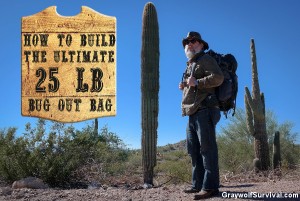
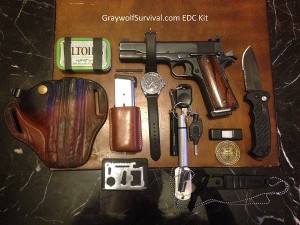
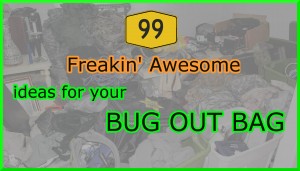
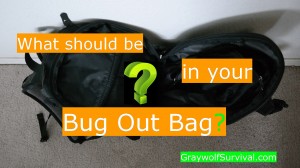

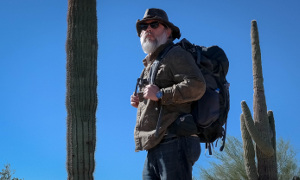
Excellent article graywolf! I think there a lot of things a lot people don’t think of when the shtf …. as being someone who lived through Sandy, I was able to see first hand the everyday simple items that were no longer available, yet were missed.
While I was not hit as bad as my neighbors down the shore … I see what they are going through and it is mind boggling to me as to why people would not at least prepare a little.